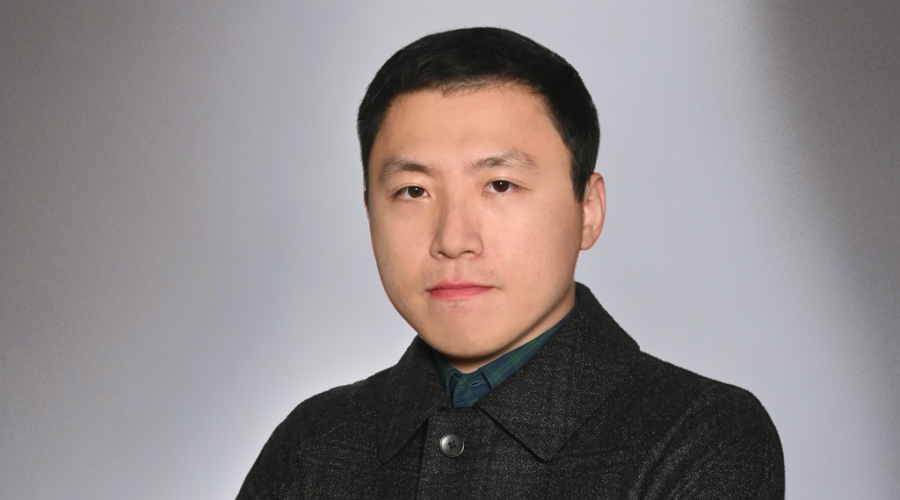
Q&A with Jian Zou
Jian Zou, whose two-year Future of Work Fellowship began in July, is working with Professor Michael Lovenheim and Associate Professor Evan Riehl at ILR.
Zou recently shared details about his research, ILR experiences and background:
What are your research interests, and how did they evolve?
I am an applied microeconomist with research interests in labor economics, economics of education and public economics. My research is guided by insights from economic theory and empirical evidence. Methodologically, my work integrates the examination of large administrative data sets with sharp causal designs that build on (quasi-)random assignment/policy variation.
A primary research agenda focuses on the economics of education. I address open questions regarding human capital on its measurement, causes and consequences. My research studies how peers, peer parents, teachers and school spending affect a student’s human capital formation.
A second research agenda of mine concerns the Chinese economy. China’s economy features many market-oriented reforms and planning-based institutional constraints. I study multiple recent nationwide instructional reforms (e.g., the 2014 hukou reform and new urbanization scheme) from the perspective of an applied microeconomist, exploiting policy variation and investing in the collection of administrative datasets.
What have been the most significant challenges and/or surprises as you research these topics?
Challenges: One of the most significant challenges I have encountered is access to high-quality administrative data. In my empirical research, much of the analytical work is preceded by intensive data collection.
For instance, in a project examining how private firms participate in Public-Private Partnership projects in China, I had to digitize bidding documents from roughly 10,000 projects. These documents were issued by different local governments in inconsistent formats, limiting the effectiveness of automated tools such as machine learning.
Similarly, in another project on school district-level teacher hiring reforms in the United States, I work with research assistants to manually collect reform documents from approximately 1,000 school districts. The digitization and structuring of such decentralized, high-quality data are both time-consuming and labor-intensive, posing a considerable burden on the research process.
Surprises: I am often surprised by how many prominent policy debates lack rigorous causal evidence. For example, in a project studying the impacts of a newly adopted performance-based teacher licensing exam – the educative Teacher Performance Assessment (edTPA) – we found extensive discussion in both academic and media circles about its effectiveness. Despite widespread implementation and attention, there was no causal evaluation of how the nationwide adoption of edTPA affects teacher supply or student achievement.
My coauthor and I saw an opportunity to fill this gap by collecting state-level policy adoption data and linking it to nationwide teacher and student outcomes. The presence of an active public debate helped us formulate precise hypotheses, while our training as economists allowed us to bring rigorous empirical investigation to the question.
Your peer-reviewed published research – are there any papers of which you are particularly proud?
I am proud of all my peer-reviewed publications (and unpublished working papers). Here, I would like to highlight three papers – each of which also forms a chapter of my dissertation – that examine how peers, peer parents and teachers influence student human capital formation:
- “The peer effect of persistence on student achievement,” published in the Economics of Education Review;
- “Understanding spillover of peer parental education: Randomization evidence and mechanisms,” published in the Economic Inquiry;
- “Occupational licensing in US public schools: Nationwide implementation of Teacher Performance Assessment,” published in the Journal of Public Economics.
What does ILR offer that attracted you to the Future of Work initiative?
When considering this position, my top priority was the research environment. The postdoctoral associate position at ILR aligns closely with my research interests in labor economics and economics of education.
What particularly attracted me is ILR’s unique combination of theoretical and analytical rigor with a commitment to addressing real-world questions. The position offers an ideal platform for conducting comprehensive and rigorous research, contributing to collaborative research projects, and developing my independent research agenda.
During your ILR Future of Work fellowship, who are you working with and what questions are you exploring?
During my ILR Future of Work fellowship, I am working with Michael Lovenheim and Evan Riehl. With Mike, I am investigating the returns to university course-taking, while my work with Evan focuses on the effects of teacher certification exams.
Both projects leverage the same Texas administrative datasets – one examining higher education outcomes and the other analyzing the teacher labor market. Mike and Evan provide complementary guidance and mentorship, and I am incredibly grateful for the opportunity to collaborate with them. This fellowship has been instrumental in advancing my research and professional development.
Beyond your academic contributions, please tell us a bit more about you.
I am a first-generation student, born and raised in a small town in China. I became interested in Chinese society and decided to study it as an economist when I was an undergraduate student. I always feel lucky to have had the chance to pursue my Ph.D. at the University of Illinois, where I was well-trained as an economist.
Now, working at Cornell ILR School as a postdoc associate makes me feel even closer to my goal of becoming a well-rounded and impactful scholar. When I returned to China after graduation last May, a friend told me to carry his part with me while working at Cornell. Many of my friends have not had the opportunity, and I always carry their aspirations with me as I advance in my career. I also hope the ILR Future of Work Fellowship can continue to help others reach their potential.